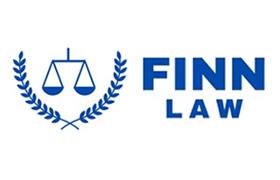 Cohoes Felony Lawyers, New York
Cohoes Felony Lawyers, New York
Sponsored Law Firm
-
 x
x

Click For More Info:
-
Finn Law Offices
12 Sheridan Ave. Albany, NY 12207» view mapAccident & Injury and Criminal Defense Action-Oriented Legal Advocacy
At Finn Law Offices, our attorney relies upon his experience and dedication to protect your rights in a personal injury, employment law, criminal defense or civil rights case.
800-872-6030
Not enough matches for Cohoes Felony lawyer.
Below are all Cohoes Criminal lawyers.
Lawyers
1-6 of 6 matches
Accident & Injury, Criminal, Wrongful Death, Personal Injury
Motor Vehicle, Criminal, Car Accident, Accident & Injury
Criminal, DUI-DWI, Family Law, Arbitration



 Ryan M. Finn Albany, NY
Ryan M. Finn Albany, NY AboutFinn Law Offices
AboutFinn Law Offices